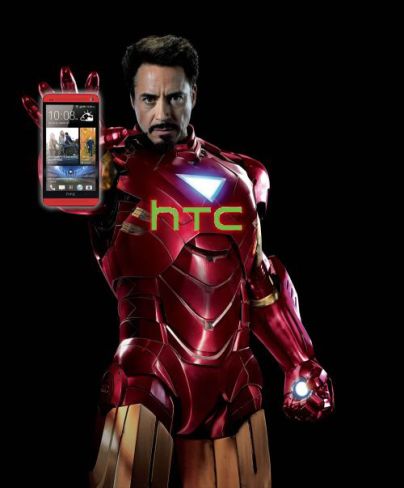Danburg on Technology: The Pitch for Smart Phone Upgrades – Should You Conform?
Written on September 14, 2013 at 2:34 am
 At Danburg Properties of Boca Raton, we were amused to see “Iron Man” Robert Downey Jr. in a $12 million deal with HTC to pitch their new smart phones. Meanwhile, T-Mobile ads are telling consumers they can switch before their 2-year contracts are up, and Apple is encouraging iPhone owners to move up to their latest plastic smart phone – the ones with the nifty fingerprint scan capabilities.
At Danburg Properties of Boca Raton, we were amused to see “Iron Man” Robert Downey Jr. in a $12 million deal with HTC to pitch their new smart phones. Meanwhile, T-Mobile ads are telling consumers they can switch before their 2-year contracts are up, and Apple is encouraging iPhone owners to move up to their latest plastic smart phone – the ones with the nifty fingerprint scan capabilities.
As a Boca Raton developer, owner and landlord of Class-A office, warehouse and industrial space in Boca Raton and South Palm Beach County, we know the power of the modern smart phone. We use them to (almost) run the Danburg Properties business operations – texting contacts and emailing contracts, scheduling appointments for property showings, downloading directions to our next meeting, updating our website – even making phone calls.
Business owners, entrepreneurs, workers and others have come to rely on the power and convenience of the modern smart phone. Whether for work, play or living, the smart phone simplifies daily life – and even captures it in pictures and video.
But how often do we need to upgrade our phones?
The commercials would have you believe two years is too long to wait – that upgrading to the latest phone, no matter how close your current phone is to 24 months may be, is a serious consideration.
It’s a serious consideration, no matter how enticing the offer may be. After all, nothing is free.
To be sure, as some ads would note, if your smart phone screen is broken or the phone isn’t operating correctly, and you either are out of the warranty period or don’t have an extended plan, an upgrade may make sense. Historically (and still with some carriers today), in-contract upgrades can be expensive. So the chance to upgrade during the contract term can make sense.
But again, nothing is free.
First, upgrades come with costs. The economics of smart phones is that for each smart phone purchase, the wireless provider – whether T-Mobile, AT&T, Verizon or one of the others – helps underwrite the cost of a new phone through fees borne from the contract consumers sign. The more frequently you upgrade, the more costs there are related to new phones. Someone has to pay those; they’re generally worked into the upgrades or contracted fees.
Second, and most important, do you really need that new phone? As we’ve written in this blog in the past, every new piece of technology comes with a price. Whether in dollars, learning curve or bugs not yet worked out of the operating system or hardware design (especially for leading-edge devices), there’s a migratory cost to upgrading.
Adapting to some new technology takes time and mental “bandwidth,” some of which some of us just cannot afford in the rush to stay atop our daily or even hourly flood of To Dos.
So, can we afford to migrate to the latest, greatest, bestest?
Some can. Some love to. No sooner are their iPhone or Samsung touch screens filled with new apps than they are peering ahead for the Next Next Thing.
That’s OK. To each his own, when it comes to technology. Besides, it can be fun to get that next shiney, new toy.
For the most of us, though – those who don’t live for the new – it’s vital from an efficiency sense to first ensure the device has a bona fide need, or that we have the time and inclination to learn about the new phone’s features.
It’s actually fun to see Mr. Downey’s ads for HTC. They’re lively and entertaining. Whether upgrading to a new phone will be equally entertaining, that’s a decision we have to make for ourselves – something no $12 million spokesman can decide for us.

